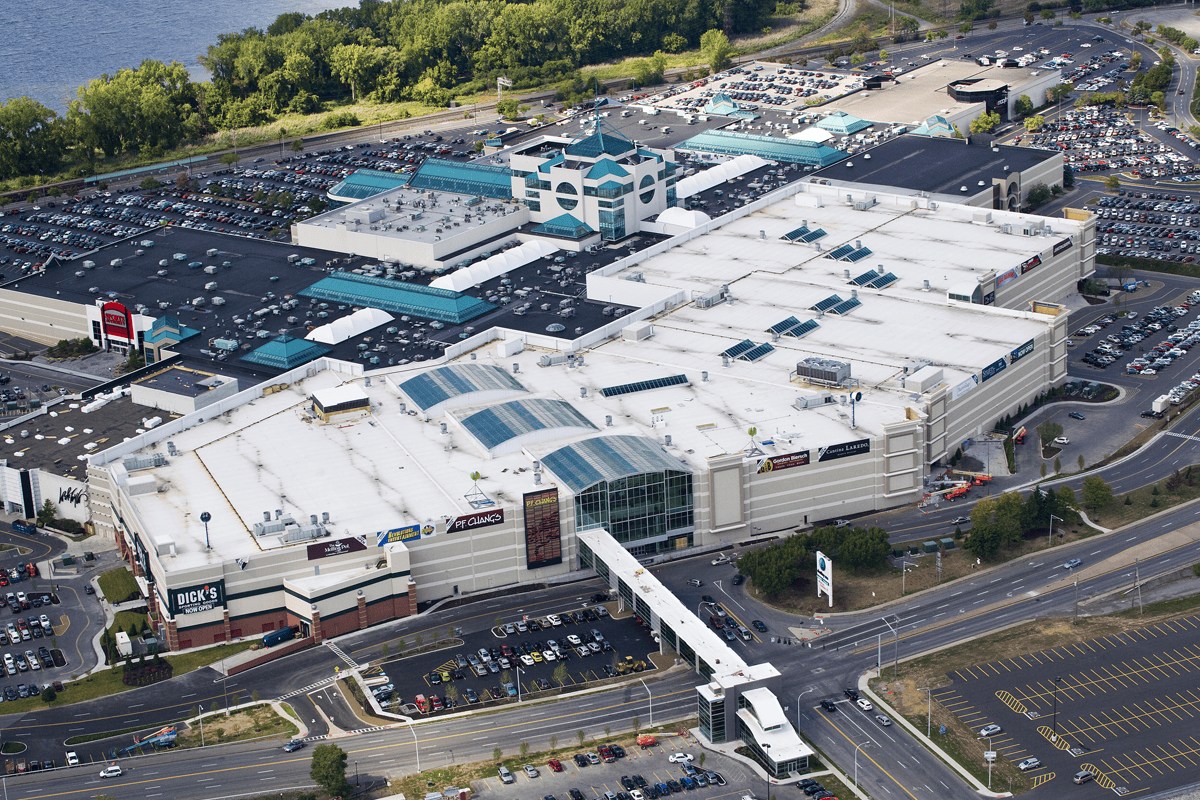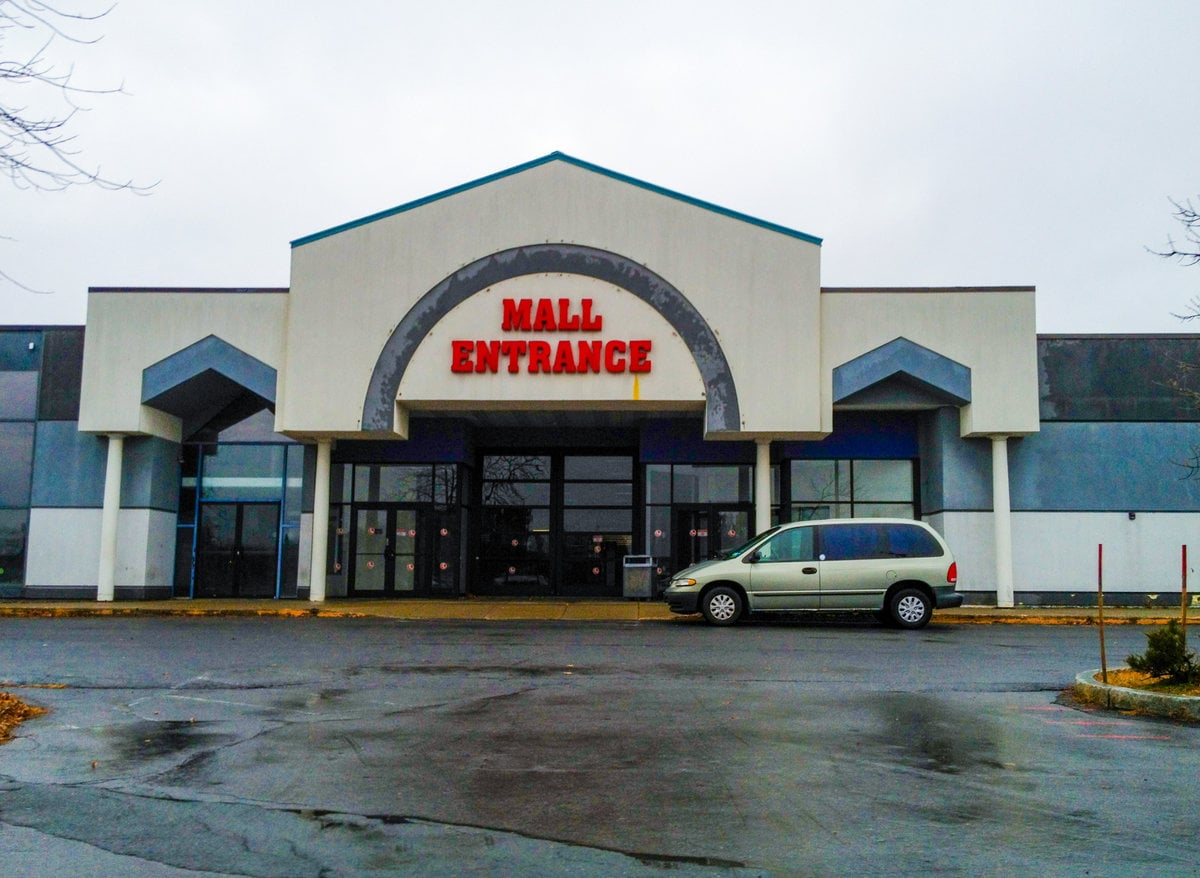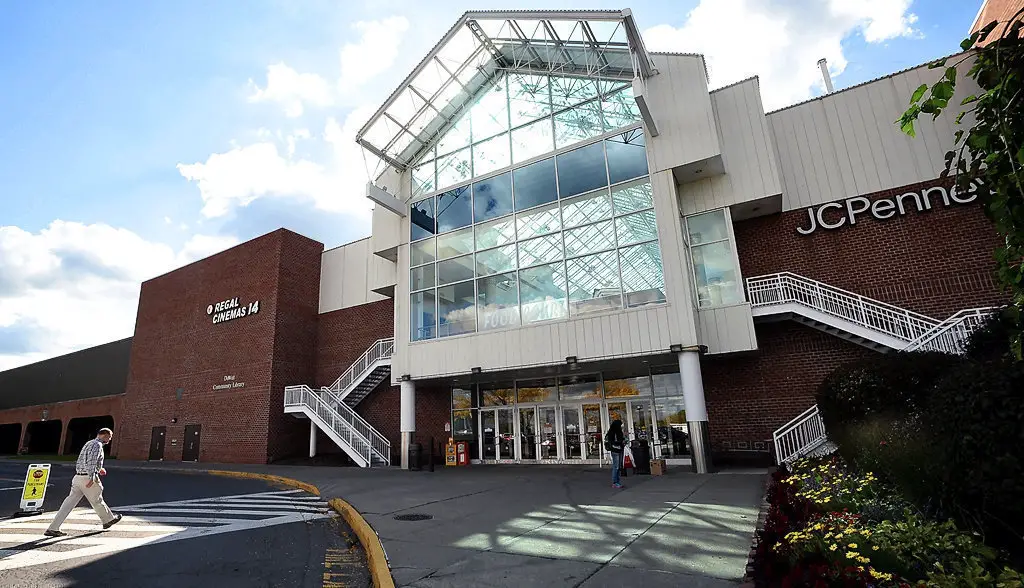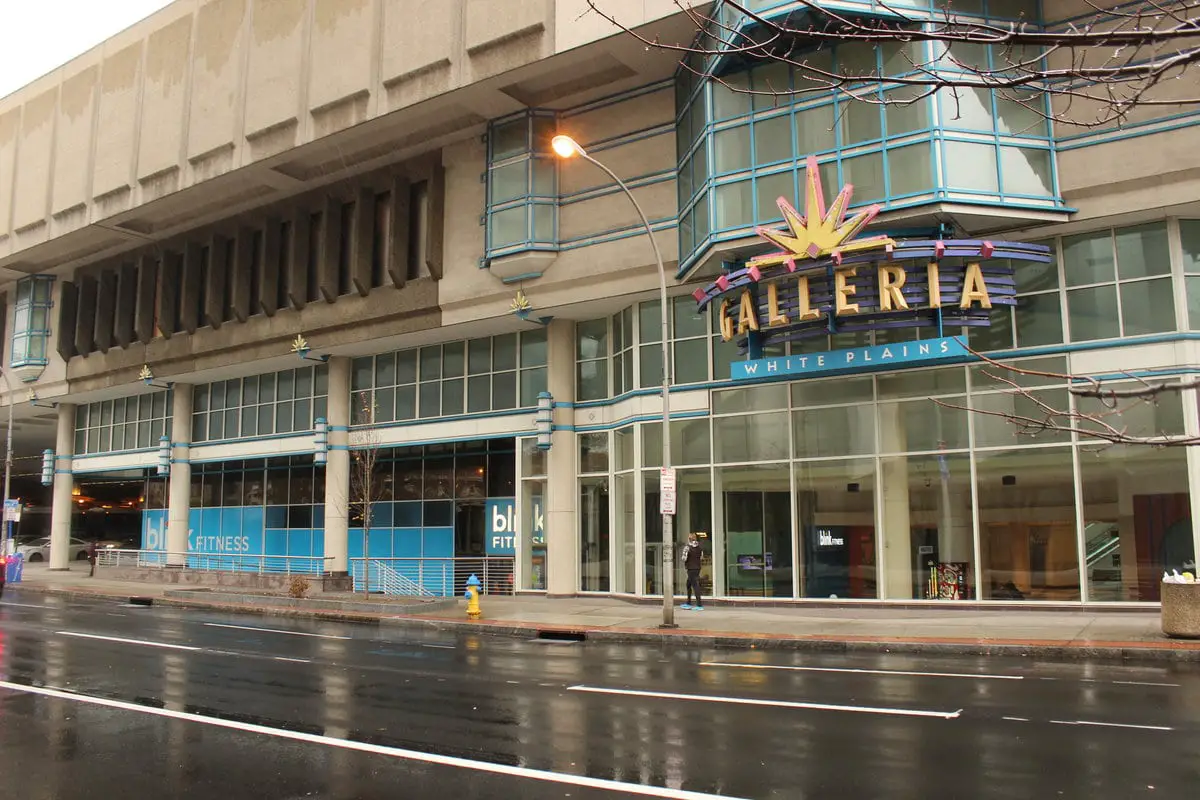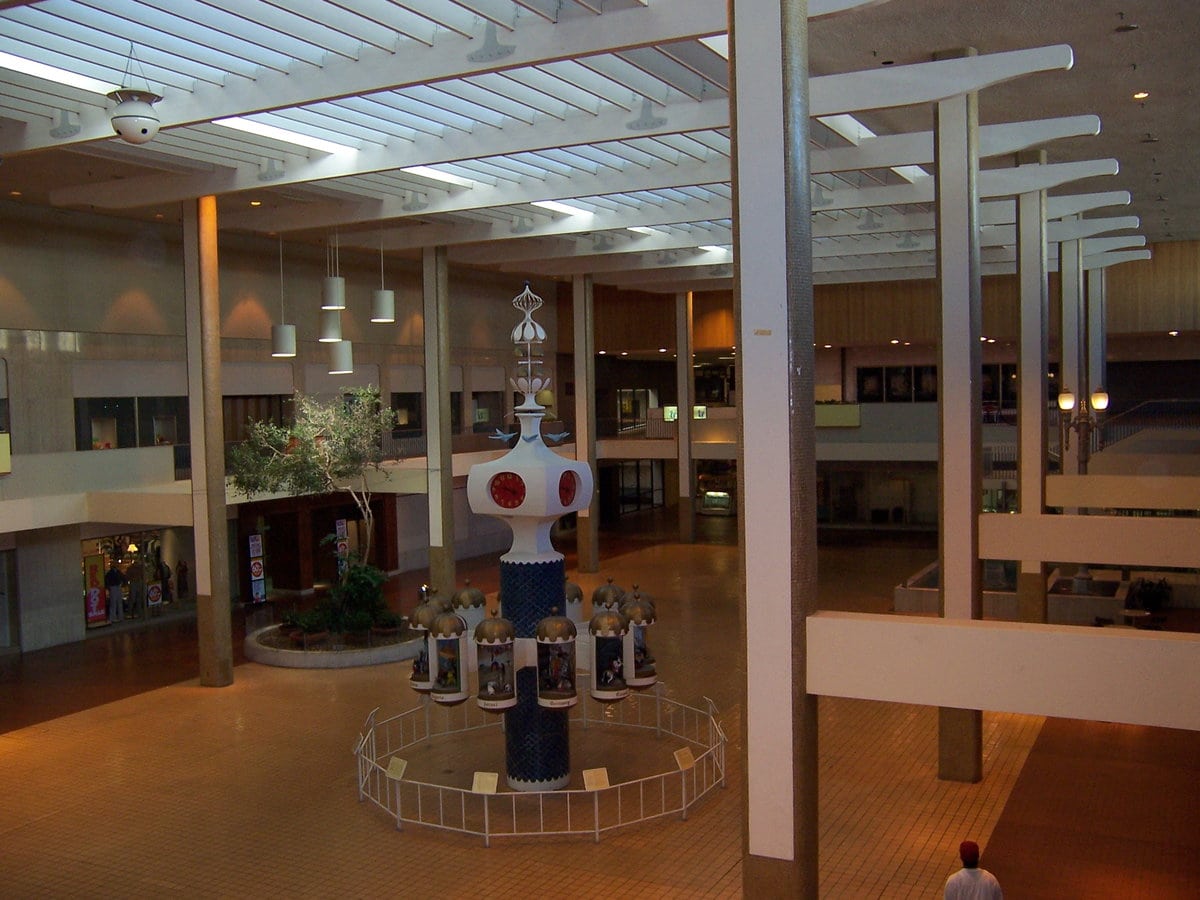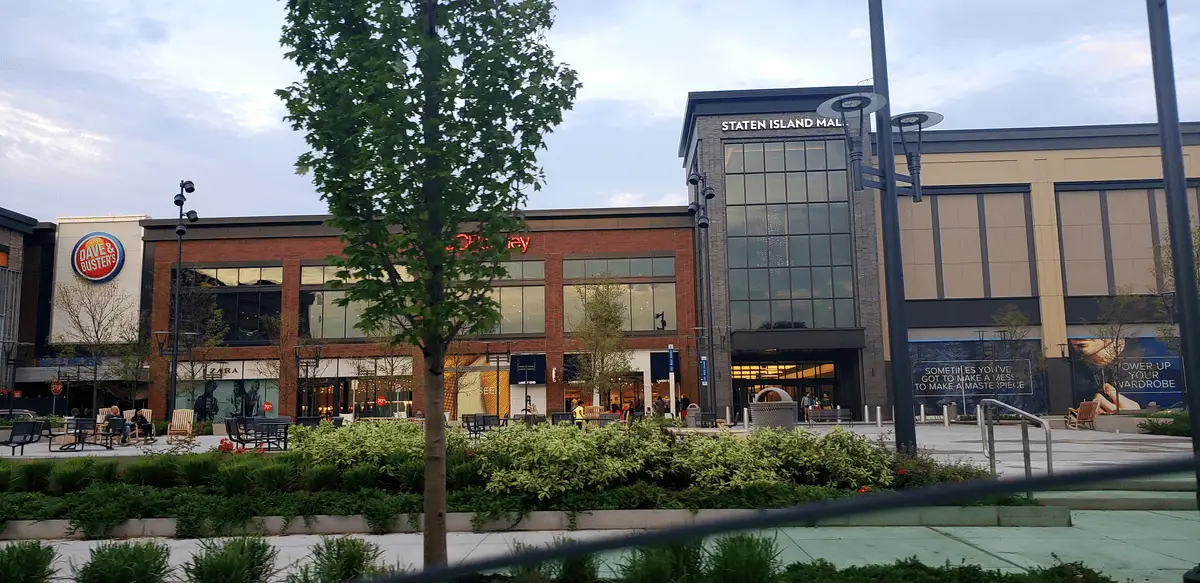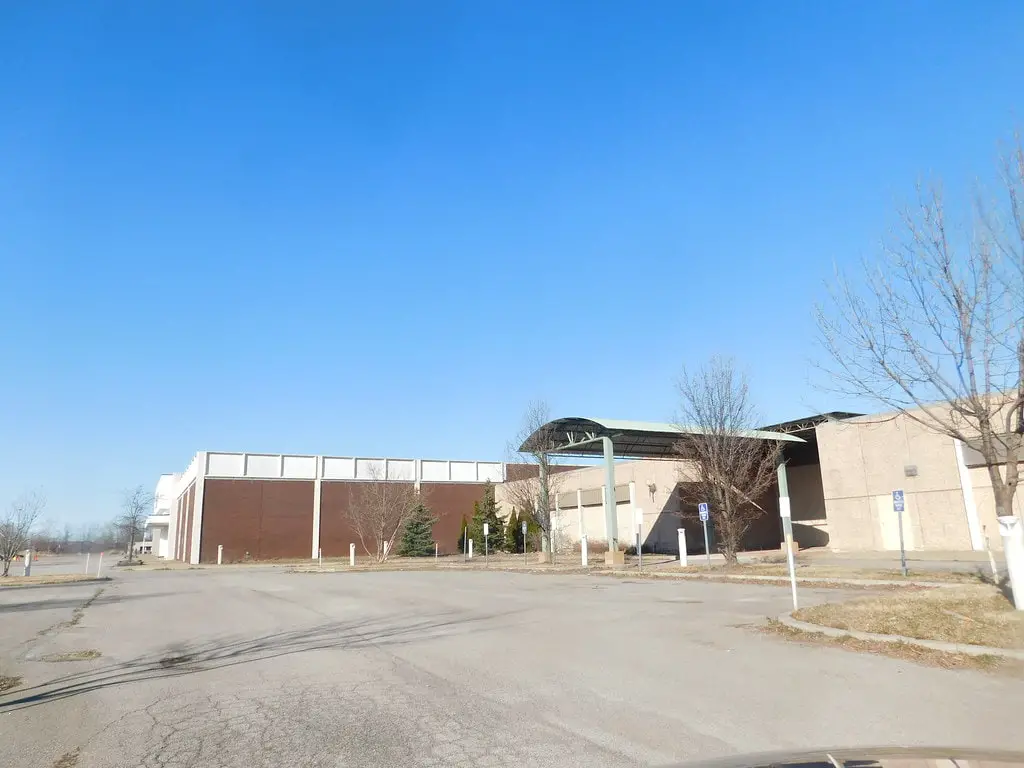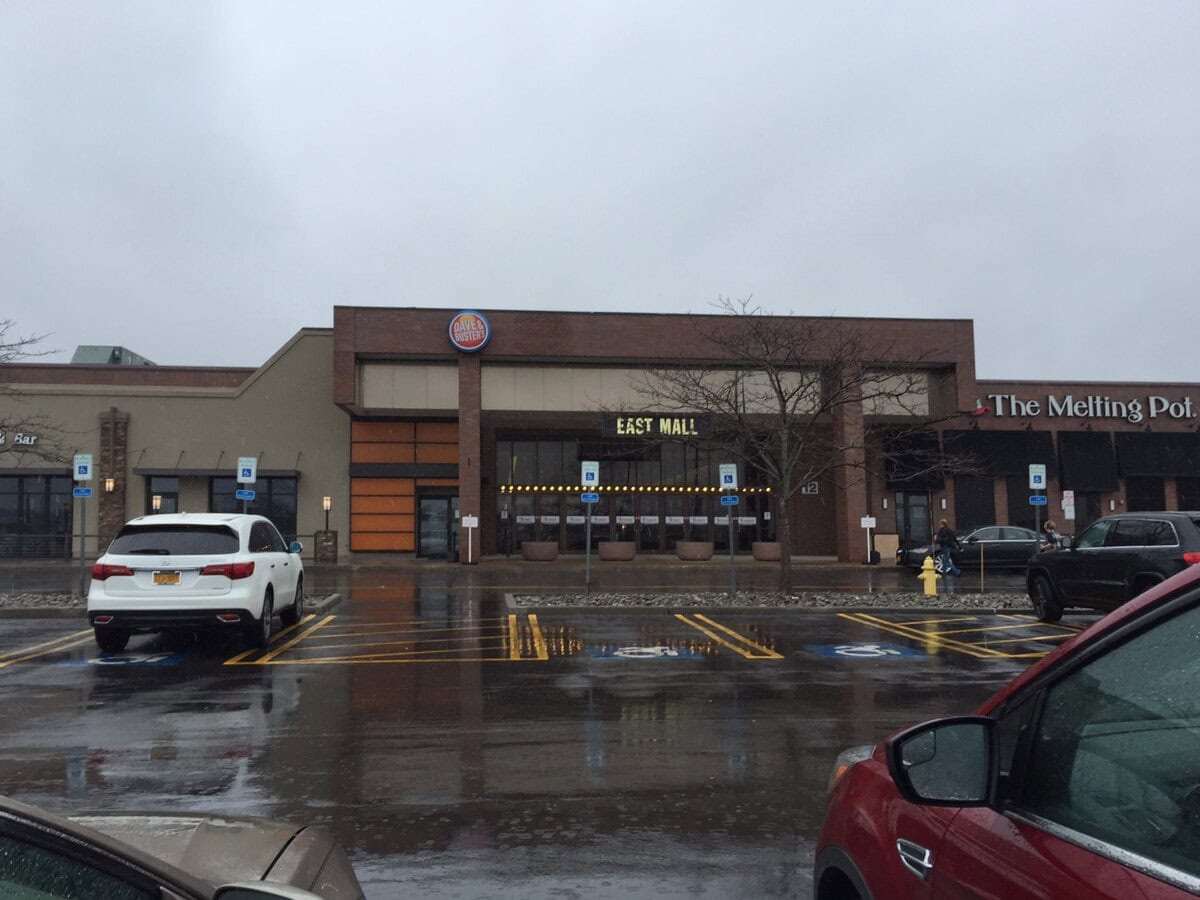Back When Malls Had Weather
Long before indoor malls sealed off the seasons, shoppers at Latham Corners strolled past storefronts under the open sky. That was 1957.
Eisenhower was in office, drive-ins were packed on Friday nights, and in Latham, New York, a new strip of retail stores opened just off the circle where Route 9 and Route 2 meet. It wasn’t huge. It wasn’t fancy. But it didn’t need to be.
With JCPenney anchoring one end and parking right outside every shop, suburban shoppers were given something closer to convenience than spectacle.
Today, that original layout feels like a relic. But it stayed active for decades and shaped the retail rhythm of the area.
Strip Sales and Asphalt – The 1957 Blueprint
The layout was simple: an open-air shopping plaza built around parking ease, consistent foot traffic, and JCPenney as the main draw.
Developers named it Latham Corners Shopping Center. It opened in 1957 during a stretch of high suburban expansion.
Nothing about it tried to compete with city-center department stores. But, the plaza gave locals what they needed without a trip downtown.
At first, retail space spread in one direction with single-level access to each tenant. Most shoppers were driving in, so parking mattered more than the ornate design.
The complex sat directly adjacent to Latham Circle, positioned where traffic naturally slowed, which helped visibility.
Anchors didn’t rotate much in those early years. JCPenney kept its space from the beginning.
Other tenants would cycle in and out as the decade turned, but no radical reshuffling defined the first phase. The idea wasn’t a novelty. It was regular use. Maintenance updates came gradually.
No temperature control. No climate buffer. Just storefronts, sidewalks, and asphalt. It would be two more decades before roofs went on.
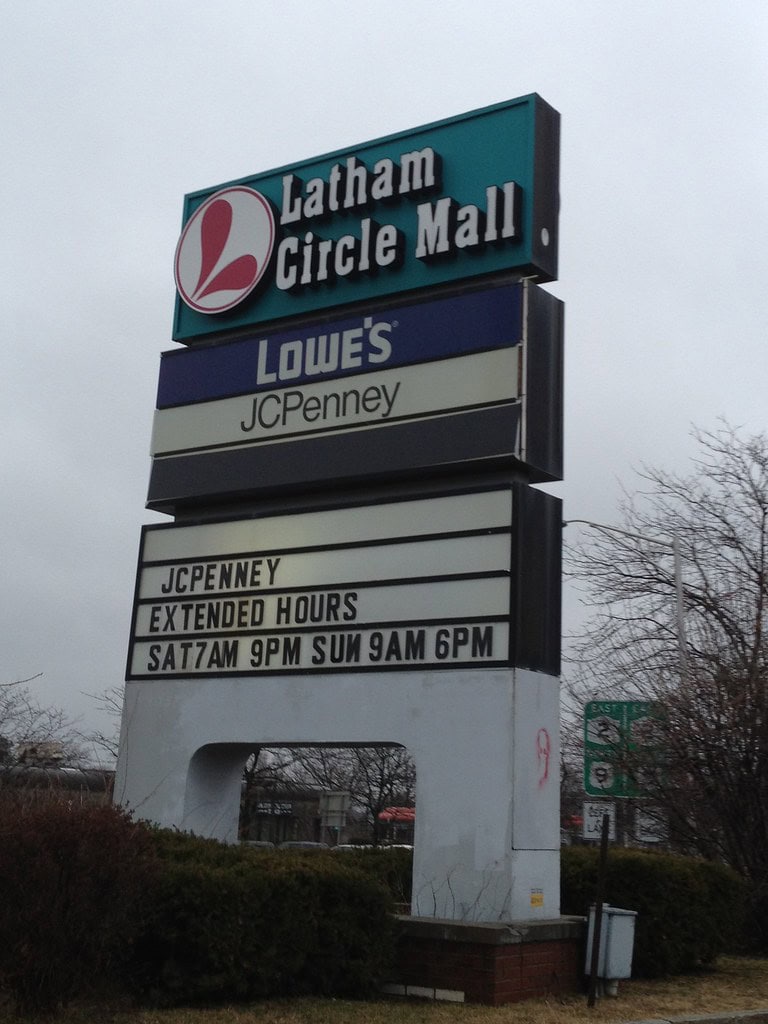
Climate Control and Retail Square Footage – 1977 Reinvention
In 1977, the entire setup changed. The formerly open-air plaza was enclosed, transforming Latham Corners into what became known as Latham Circle Mall.
Retail design in the late 1970s leaned toward full-season usability and extended shopping hours, which meant walls, skylights, and HVAC systems.
The overhaul turned it into a temperature-controlled, two-level mall with interior corridors. That format gave it a new draw, especially during colder months.
The tenant lineup expanded alongside the structural work. Woolworth and Boston Store were added to the existing JCPenney, rounding out a three-anchor core.
With that configuration, the mall could host national chains and smaller specialty shops under one roof.
The space wasn’t oversized, but it was efficient, designed to drive foot traffic past a concentrated mix of storefronts.
The change followed a regional pattern, as other open plazas were undergoing similar enclosures.
What gave Latham Circle Mall an edge, briefly, was its placement at a high-traffic interchange and the lack of direct indoor competition nearby at the time.
That edge would wear off within a decade, but in 1977, the mall had caught up with national format expectations. Its new layout didn’t carry luxury branding, but it met the era’s standard for full-service suburban retail.
Additions, Closures, and Layout Shifts – 1988 to 1999
By 1988, the mall expanded again. The most visible addition was a two-level structure to house a ten-screen Regal Cinemas complex.
At the same time, the original JCPenney was replaced with a newer, updated store elsewhere on the property. Caldor moved in as a new anchor, occupying a substantial wing added during the same renovation cycle.
That brought the mall to full capacity and gave it a stronger evening and weekend presence.
The gains didn’t last. A fire closed the Boston Store in the late 1980s. After reconstruction, Burlington Coat Factory took its place in the early 1990s, occupying both levels of the vacated unit.
Tenant rotation grew more volatile through the decade. Woolworth shut its doors in 1995. Three years later, Stein Mart moved into the former Woolworth space, but it lasted only until 2001.
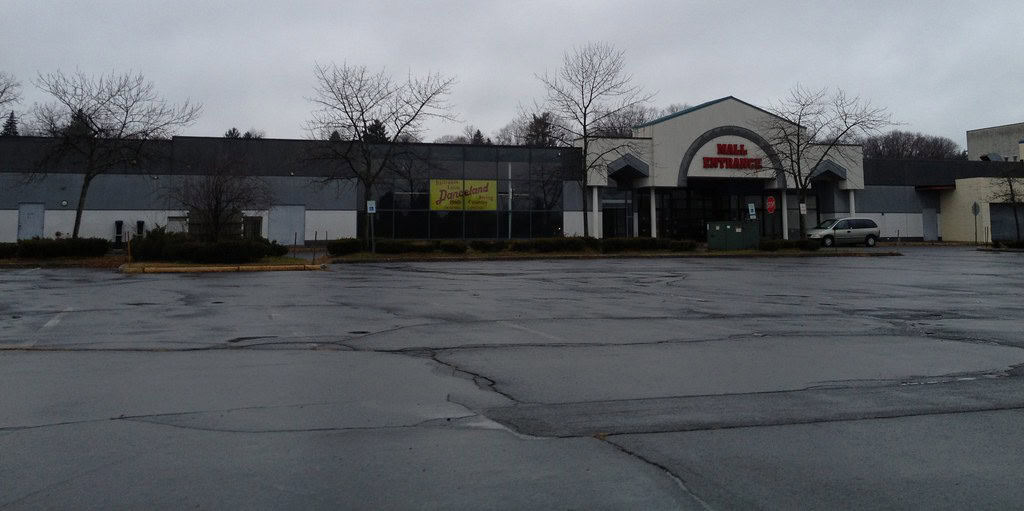
Retail Attrition and Empty Units – 2000 to 2007
Tenant loss at Latham Circle Mall became harder to miss after 2000. Caldor’s closure in early 1999 had a deeper effect. When the chain folded, the mall lost a core anchor.
The Caldor wing was demolished in 2003 and replaced by a Lowe’s that operated independently of the enclosed mall interior.
It functioned as a standalone anchor with no direct traffic feeding back into the mall itself.
After Stein Mart closed in 2001, the unit went dark until a Gold’s Gym moved in from a former Grand Union building nearby.
That swap barely slowed departure.
By 2005, Gold’s Gym also moved out, relocating to a newer facility on Route 2. That same year, reports surfaced about rising vacancy rates and unpaid debts.
The mall faced foreclosure proceedings, with a reported $21 million in debt hanging over the property.
On May 19, 2007, a redevelopment plan was announced in local media. It involved a full exterior refacing and the addition of new tenants.
There was nothing groundbreaking in the proposal, but it aimed to keep the mall relevant. The plan collapsed before any physical work began.
No construction. No new leases. The shell stayed up, but its core retail mix was hollowing fast. Anchor traffic dropped, and smaller stores didn’t have enough support to remain open long.
Auctioned Assets and Real Estate Reshuffle – 2009 to 2012
In September 2009, the property changed hands under strained conditions. The Boston-based lender LR6-A Latham LLC acquired the mall at auction. The group was affiliated with Realty Financial Partners out of Wellesley, Massachusetts.
This wasn’t a bold play. The mall had already gone into foreclosure, and the acquisition was a creditor’s attempt to recover whatever value remained in a stalled property.
In May 2011, leasing duties shifted to CB Richard Ellis. The firm proposed a new direction for the site, centered on retail restructuring and redevelopment.
According to materials circulated that year, the new layout would retain Lowe’s and JCPenney while removing most of the enclosed interior.
The revised concept called for open-air formats, restaurant parcels, and new anchor pads.
By August 2012, Grossman Development Group released its plan under a new title: The Shoppes at Latham Circle.
That iteration kept JCPenney and Lowe’s and proposed short-term retention of Regal Cinemas. Grossman’s proposal also included spaces for grocery and big-box anchors.
The plan moved faster than earlier ones. Demolition crews arrived in March 2013. The site’s purpose was finally shifting, but by then, few interior tenants remained. The mall’s original concept had lost its draw.
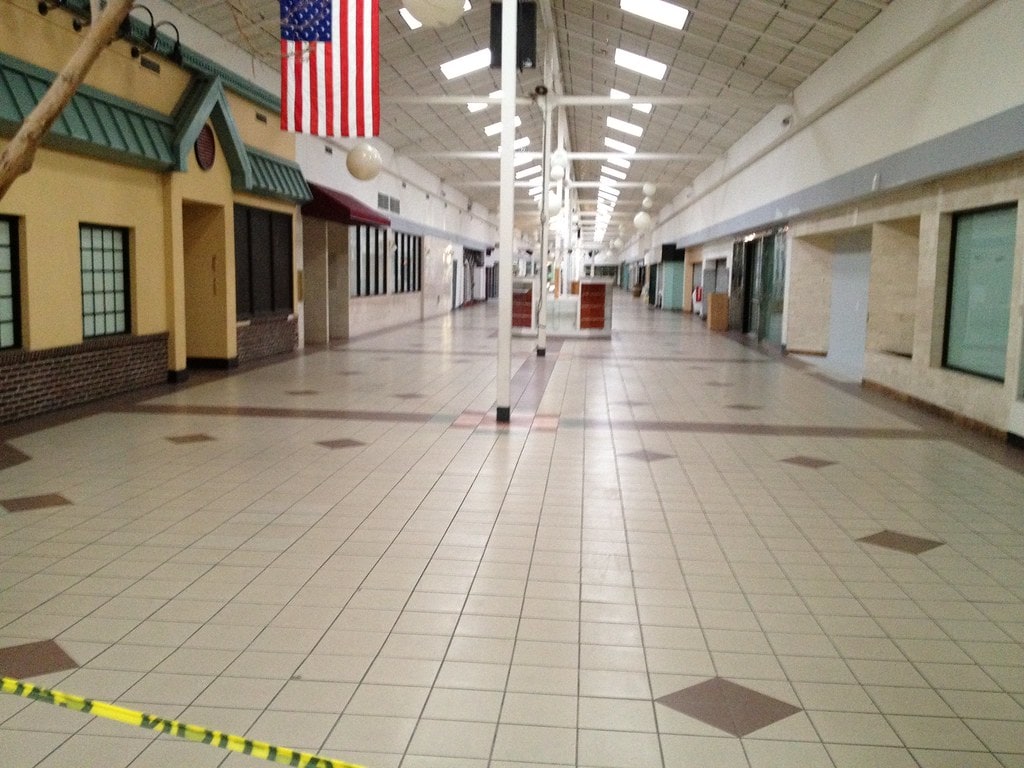
Tenant Roll-Off and Structural Takedown – 2013 to 2014
By early 2013, Latham Circle Mall had dropped below critical mass. Burlington Coat Factory had already left in May 2012.
Regal Cinemas stayed a little longer but closed in early 2013. JCPenney was the final holdout, operating solo in a mostly empty complex until January 4, 2014.
That date marked the end of its decades-long run at the site.
Demolition crews started in March 2013. The process unfolded in phases. Grossman Development Group, overseeing the overhaul, held to a plan that preserved Lowe’s and cleared the rest.
A March 2013 announcement from Dick’s Sporting Goods made it clear that the new direction had traction.
Their commitment to occupy a new pad in the Shoppes at Latham Circle gave the project retail weight.
By August 2014, a second wave of demolition was approved. It targeted the last structural remnants that had housed Regal and JCPenney.
Grossman revised the site plan again around this time. A Bob’s Discount Furniture and an LA Fitness were added to the mix.
Each had a fixed build-to-suit footprint rather than shared internal access.
The shift marked the full dismantling of the enclosed mall concept on that site. Everything left from the earlier layout was taken down and replaced with exterior-facing units.
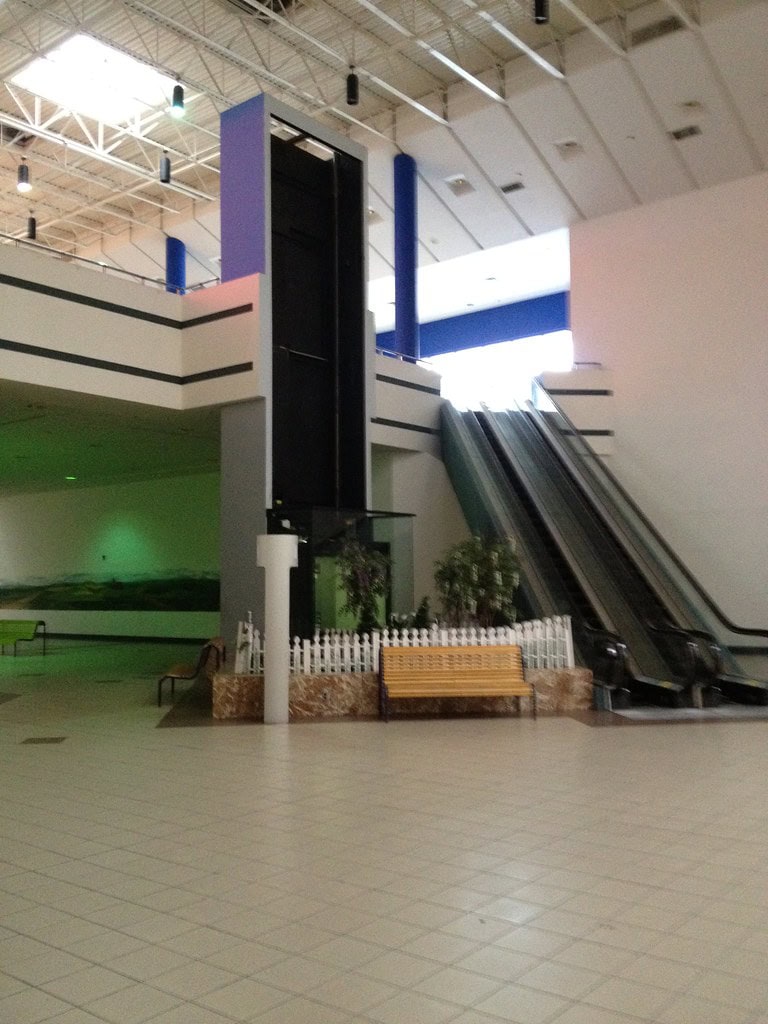
Pad Sites, Anchors, and Post-Mall Retail – 2015 to 2025
Construction moved fast between 2014 and 2015. Walmart confirmed its entry in April 2014, announcing plans for a new Supercenter to replace its older store at Latham Farms.
That move wasn’t subtle. Walmart wanted control of traffic and space. Their new location gave them both.
As of 2018, the tenant roster at the Shoppes at Latham Circle had been filled out. Walmart anchored one end. Bob’s Discount Furniture took one of the newer boxes. Burlington returned, this time in a fresh space built to match current retail layouts.
Lowe’s remained in place from its earlier standalone construction. Smaller units were occupied by fast-casual outlets like Jersey Mike’s Subs, Moe’s, and a local pizza place.
GameStop, T-Mobile, and Skechers Warehouse Outlet also opened branches.
No major changes were logged through 2024 or the first half of 2025. Leasing records and trade news show no new site plans or tenant shifts.
The current configuration still operates with standalone structures, each with direct lot access and no internal walkways.
The transformation finished more than a decade ago and has held steady. What used to be a fully enclosed mall now exists only in property records and photo archives.
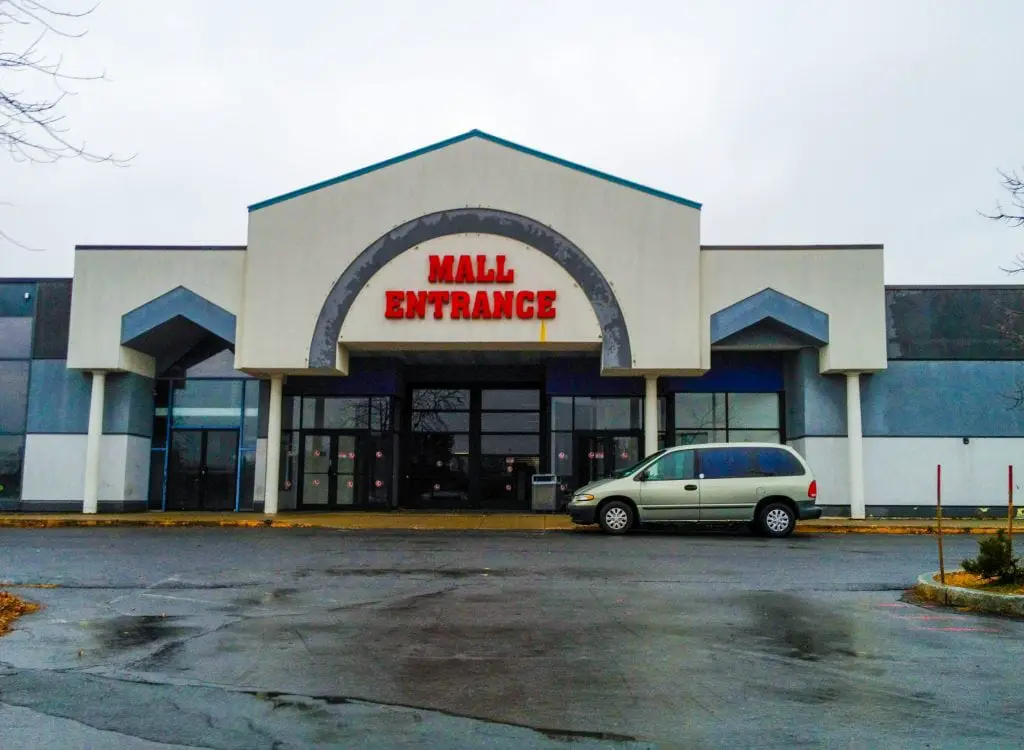
🍀

